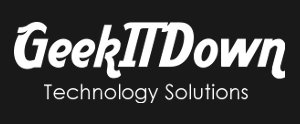Recent events and technology advances have placed great pressure on the PC industry. The ever growing presence of iPads and other tablets have meant diminishing PC sales. While the industry itself battles with tablets for market share there comes news from HP, the number one retailer in the world of PCs, that they no longer want to sell PCs. As the industry takes hit after hit, the murmurs begin that perhaps the PC era is over.
The Tablet Threat
The most popular tablet, the iPad, has made huge inroads by being the first portable computer-like device that is worth using. Like any new gadget, curiosity drove initial sales and as Apple successfully marketed their iPad product other tablets were created from competitors and so the tablet wars were born.
Tablets are convenient and portable, but are they a PC killer? That’s a definitive no. Tablets have been marketed to be a tablet computer without all the weight, bulkiness and trouble of a laptop. Fact is, tablets are little more than large smartphones. Does that make them worthless? Certainly not, in fact it makes them desirable especially for those who don’t do much other than browse the web, check email and play games. Think of tablets as your hardware device for the cloud.
As tablets continue to develop they will likely achieve greater capabilities and establish themselves as a must have device. For now, they cannot replace a PC.
HP and Computer Sales
PCs have enjoyed a long and flourishing span of success. Sure there have always been different brands, but they are all computers in the end. Now the road has become more bumpy as smartphones and tablets eat up sales that would otherwise be available to computer manufacturers. HP decided to jump ship early and whether it is a well thought out decision or not, they deserve credit for having the guts to make such a move.
Does HP’s departure from PC sales mark the end of the PC era? No. However, it may indicate a climate shift in the industry. Manufacturers will need to take the cookie cutter approach of ‘install hardware necessary to run the latest version of Windows’ and throw it out the window. Brands like Dell, Acer, Toshiba and others will have to adjust their way of creating PCs to better fit the lifestyle of their consumers.
What does that mean? Specifically, consumers are on the go more than ever so access to anything and everything needs to be at their fingertips which translates to more cloud integration. Along those lines, having cloud options isn’t enough. Those options and connections need to be 100% secure, which means hardened encryption, firewalls, heavily monitored servers and redundant backups for all users as standard packaging.
The final step that manufacturers need to take involves trashing the current look and feel of computers. One thing tablets have shown us is that shrinking hardware to create a slick device is possible. Manufacturers need to realize the bulky box system is not what future consumers want. Additionally, laptops aren’t a good enough alternative. Just as cellphones advanced to smartphones and tablets, PCs must be advanced beyond their current configurations and make the PC an item that belongs anywhere in the home not just on a computer desk in another room. The technology is there, but someone needs to take the leap.
Computers Live On
Regardless of what happens over the next several months and few years, computers are here to stay. Their overall appearance and presence may change, but their function will remain the same. Businesses alone will enable computers to continue for an unknown length of time. Home PCs are the most likely to have change befall them as hardware advances and competition heats up between the different platforms. The thing to remember is that somewhere a PC is being used to maintain something you’re fond of, whether it be a website, email, financial platform or something else. Yes, PCs are here to stay.
Final Thoughts
In my opinion the PC is not dead, but with the acknowledgement that the industry needs to make some changes to compete with the onslaught of tablets and future computing gadgets. If you’ve been wondering whether you should spend your $500 or more on a tablet or PC, then the answer is a PC. Tablets priced equally to computers are ridiculously overpriced. HP got one thing right, they dropped the TouchPad to $99 when they decided to discontinue it and it flew off the shelves. While $99 might be too cheap, no tablet should cost more than $300 for what they offer. My advice, save your money for when a tablet can do everything your computer can.
Your Thoughts
Do you think PCs are dead? Are PCs on their way to see the dinosaurs? If you agree or disagree, please let us know in the comments! We love a healthy debate.



